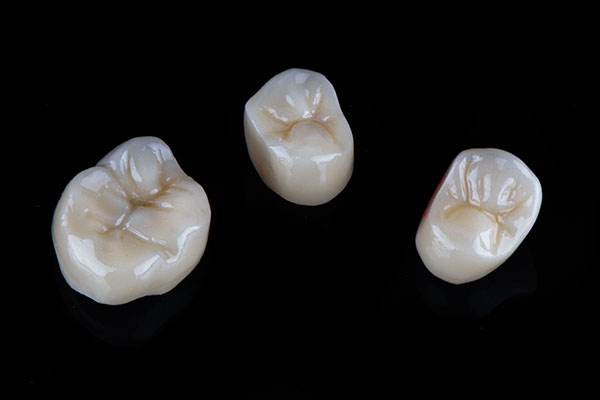 Dental crowns come in a range of material options, including zirconium and porcelain. These materials vastly increase the aesthetics and reliability of dental crowns as compared to past alternatives. Regardless of the material, most dental crowns look and work well. However, there are some significant variations between these options to be aware of. This article compares the common dental crown materials.
Dental crowns come in a range of material options, including zirconium and porcelain. These materials vastly increase the aesthetics and reliability of dental crowns as compared to past alternatives. Regardless of the material, most dental crowns look and work well. However, there are some significant variations between these options to be aware of. This article compares the common dental crown materials.
Dental crown materials
Some of the common dental crown materials include:
Composite resin
A dental composite is a form of synthetic resin. Composite is commonly used in fillings and is customizable to match the appearance of surrounding teeth. The composite material can also be used to make solid crowns with curing and drying. Dental composite crowns are suitable for people who are sensitive to both metal and porcelain materials. Although composite crowns are not the sturdiest or most resilient, they are a viable option for dental restorations.
Composite crowns have several advantages, including a reduced cost compared to gold and porcelain crowns, the ability to mitigate tooth sensitivity, and a less reactive soft feel than other metals. Those who are not sensitive to metal or porcelain may not be satisfied with composite crowns compared to other types of crowns because they are less durable and have a shorter lifespan.
Gold crowns
Thanks to its durability, gold material is commonly used in dentistry. In the mouth, gold is less reactive compared to other metals. Gold is even gentle on the teeth on the opposite side of the crown. Gold is particularly beneficial for patients who grind or clench their molar teeth regularly. Although gold is lightweight, it is extremely durable and solid.
Gold allows for conservative crown preparation while also preserving healthy tooth structure. Glass ionomer cement, which decreases sensitivity, works well with gold. However, since gold is not aesthetically pleasing, it is not commonly used for dental crowns.
Porcelain crowns
Of all the crown materials, full porcelain crowns have the most realistic appearance. This crown has a beautiful appearance and fits in well with the rest of the teeth. Porcelain is also preferred for its inability to conduct heat and cold efficiently. This suggests that sensitivity to hot and cold foods is reduced during the initial placement time.
Porcelain crowns have the rare disadvantage of causing damage to neighboring teeth. However, such harm is uncommon and is usually caused by excessive teeth grinding or clenching.
Porcelain fused to gold
Patients have the best of all worlds when porcelain and gold materials are combined. For those finding a combination of power and visual appeal, porcelain crowns fused to gold crowns are ideal. Porcelain is fused and then layered on a gold alloy frame. The porcelain provides visual appeal when the patient opens his or her mouth to speak, smile, or chew, while the gold base protects the tooth.
In conclusion
It is important to consult the dentist when considering any dental care. The comparison provided above is solely intended to assist you in properly understanding dental crown materials. Remember that each individual is unique, and their anatomical considerations and health have a greater impact on the kind of dental care one requires.
Request an appointment or call Frankford Dental Care at 215-302-1746 for an appointment in our Philadelphia office.
Recent Posts
A cosmetic dentist can use a dental crown to improve your dental health. A tooth with severe decay or discoloration can be depressing. The infection could reach the pulp at any time. Placing a custom-fit dental crown can protect your tooth from further damage and injury. If you want to know more about the steps…
Dental crowns are dental restorations that cover teeth entirely for added protection, improved function, and cosmetic purposes. Dental crowns are versatile treatment solutions, and there are many reasons that a dentist may recommend this treatment for patients.The most common reasons that dentists recommend a dental crown are to protect a tooth that is weakened or…
Dental crowns are often costly and require that a dentist remove a significant amount of the tooth's structure to place them. Read on to learn about dental crown alternatives. Other treatment alternatives are sometimes available that are either less expensive or significantly less invasive. Dental crowns are frequently used to restore severely damaged teeth.The following…


